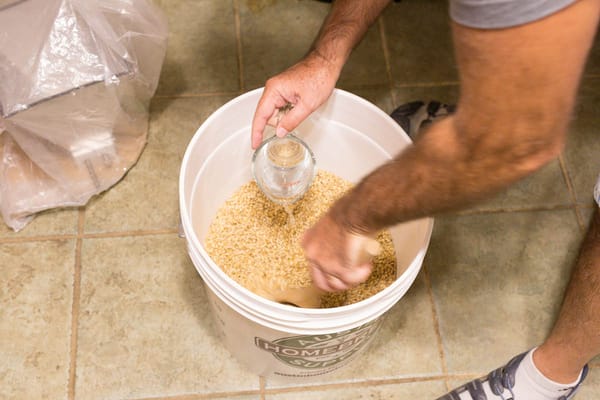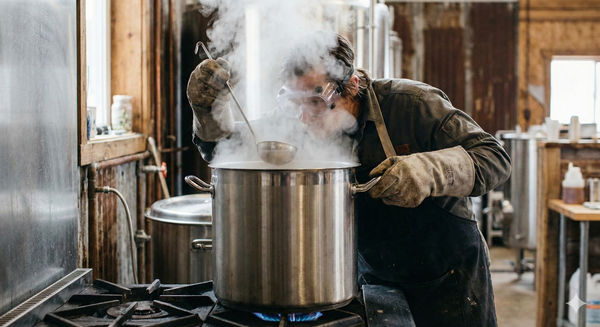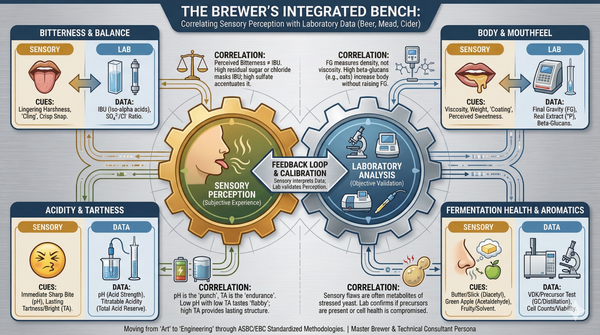Learn from my mistakes...

I firmly believe we learn from history, even our own. While it may seem pedantic, I learn through doing and, most often, making mistakes. So here's my top 6 things I learned in this past year. Consider it confessional and cathartic.
1. It takes a while to recover from a complete reset.
I decided early in the year to completely reboot my brewing approach. I was getting bored, and a little frustrated with my beer's quality. While they were good, and earning decent competition scores, it felt like I was throwing good effort after bad with little improvement. I went through my brewing processes and made several adjustments, and changed far too many variables at once, resulting in several months of brewing without hitting goals. I nearly threw in the towel.
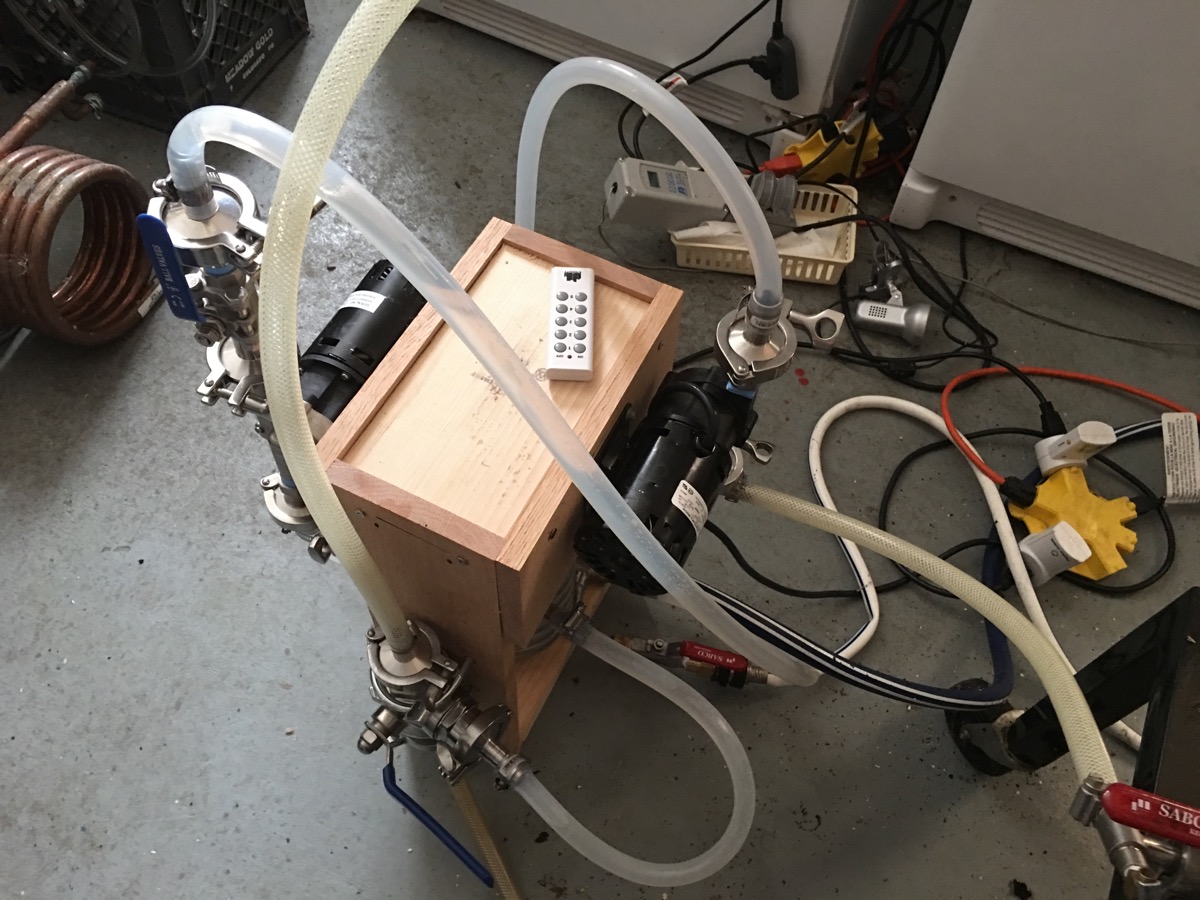
It was as if I was back again learning to brew on the Brew-Magic without experience. Over the past few months, I have had to isolate single issues - crush, water chemistry, mash techniques, troubleshooting. All this while trying to integrate LO2 into my processes. I may finally have a handle on things.
Only change a single variable at a time. Just one. Brew iterative batches to compare, and compare as honestly as possible. Chase consistency over efficiency. Simplicity is often the better decision. Set your expectations properly... huge changes introduce many variables.
2. I may be wrong or I may be right
Apologies to Billy Joel, but I have made errors in measurements and expectations, perhaps out of hubris, or perhaps just bad luck. I let some notes get tossed out before recording them into my log. This left me scratching my head as I was troubleshooting. I didn't have all the data I needed to make an educated guess.
I discovered that one of the thermometers I used often was off by a few degrees. And realized that my hydrometers didn't really match up. I replaced my old hydrometers with high-resolution versions. The old thermo is marked and ready to go into the smoker (and not in the brew house). I had to replace a pH probe that was not stable. Recognize that all of these things can cause confusion, and calibration and stability should be part of your maintenance schedule.
Keeping good notes is essential. While I have written about this before, I got lazy, yet again. The brewery is a messy environment, so instead of taking my log book or laptop out, I take notes on my brew sheets (printed from BeerSmith and Bru'n Water) and they can take a beating. I used to close my brew days by copying the notes into BeerSmith and my log, but I lapsed. On occasion I picked up the wrong water sheet in the garage and added the wrong water chemistry. Not a horrible error, but certainly embarrassing.
Take detailed notes and have the discipline needed to record and save your notes. Good note taking breeds confidence as you can confirm information batch to batch.
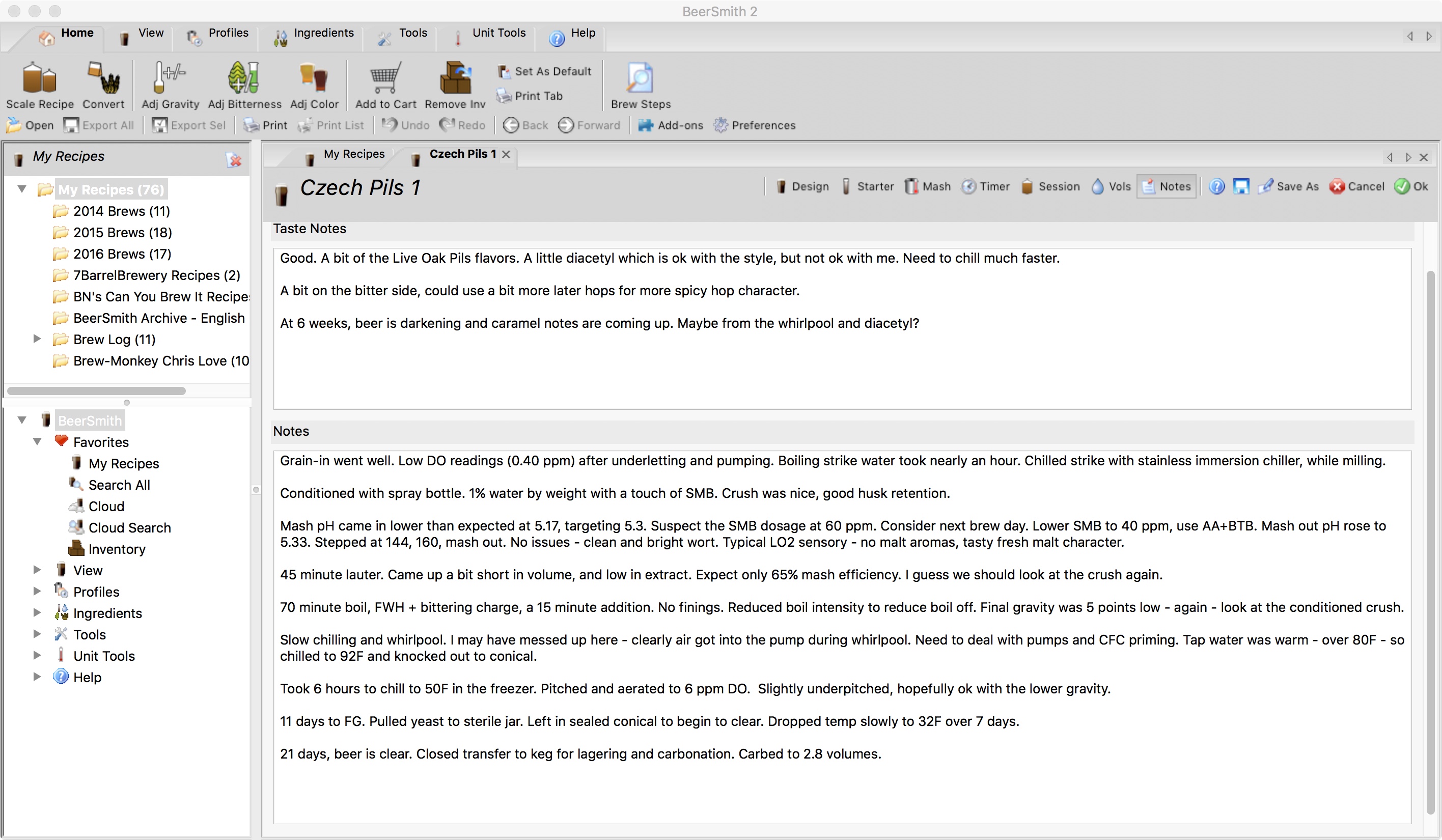
3. Brew the same recipe over and over
Ok. This might be a little on the anal retentive side, but trying to nail a style or recipe requires iterative brewing. There are many things to master: technique, recipe creation, fermentation, etc. It helps to have a passion for something, like a light lager. Again, change a single variable as you re-brew, even if it is simply changing malt vendors. Learn what variables matter for that style - on your system - with your approach. You may get sick of that particular style - so break up the monotony.
Review the beers with your notes: what changed and how impactful was the change? Can you confirm that the malt/hop/yeast/ferment change was the outlier? Find trusted friends to help judge those beers side by side. Better yet, blind triangles will help remove bias and provide data points that you may not otherwise gather.
Caveat: Most brewers are happy with a lot of style variety and not concerned with consistency. You should brew however and whatever makes you happy. Consistency is something that I strive for. The result is a level of confidence that allows me to risk ingredients in larger batches.
4. Little things that make a difference
When I say little things, lemme 'splain. No time. Lemme sum up. I keep a stack of disposable Solo cups handy in the brewery. They are incredibly useful - great for weighing hops, minerals, and for a quick wort sample. Same for my wall paper tray. It is long enough to handle my whisk and steel spoon, and a catch basin for many of the little gaskets, clamps and other widgets I need so often that needs sanitation.
Lot's of spray bottles (I keep 3 full at all times) of StarSan or SaniClean, so I am not searching relentlessly when I need one. A chest of tools and spare parts, ready when I need them. Not to mention Mason Jars (and new lids) - lots of them. They are useful for so many things, especially yeast handling, and easy to sanitize in a pressure cooker.
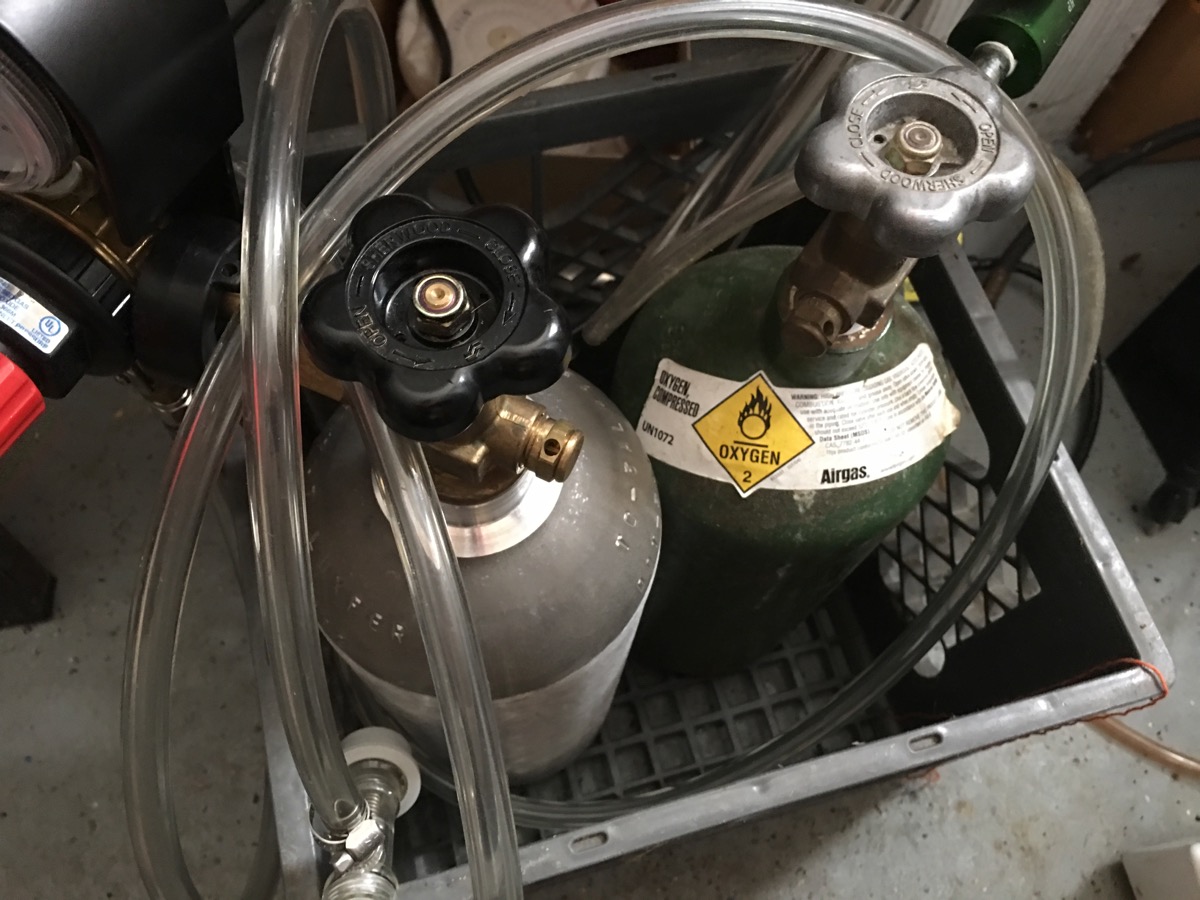
While these things don't directly improve my beer, mead, or wine, they sure take a lot of the anxiety away. Collect useful things and discard those that just don't work. Of course, it helps if the significant other doesn't mind some clutter. Just don't let it stack up like I tend to do.
Extra "little things" are handy when a fellow brewer needs help. Be generous and I bet you might benefit from some reciprocal love when you are missing a tri-clamp or short a bit of c-malt sometime. I recently 'passed along' a retired brewery to someone wanting to move into all grain. Only took an hour or so to clean everything up nice and spiffy. Felt awesome to pay it forward!
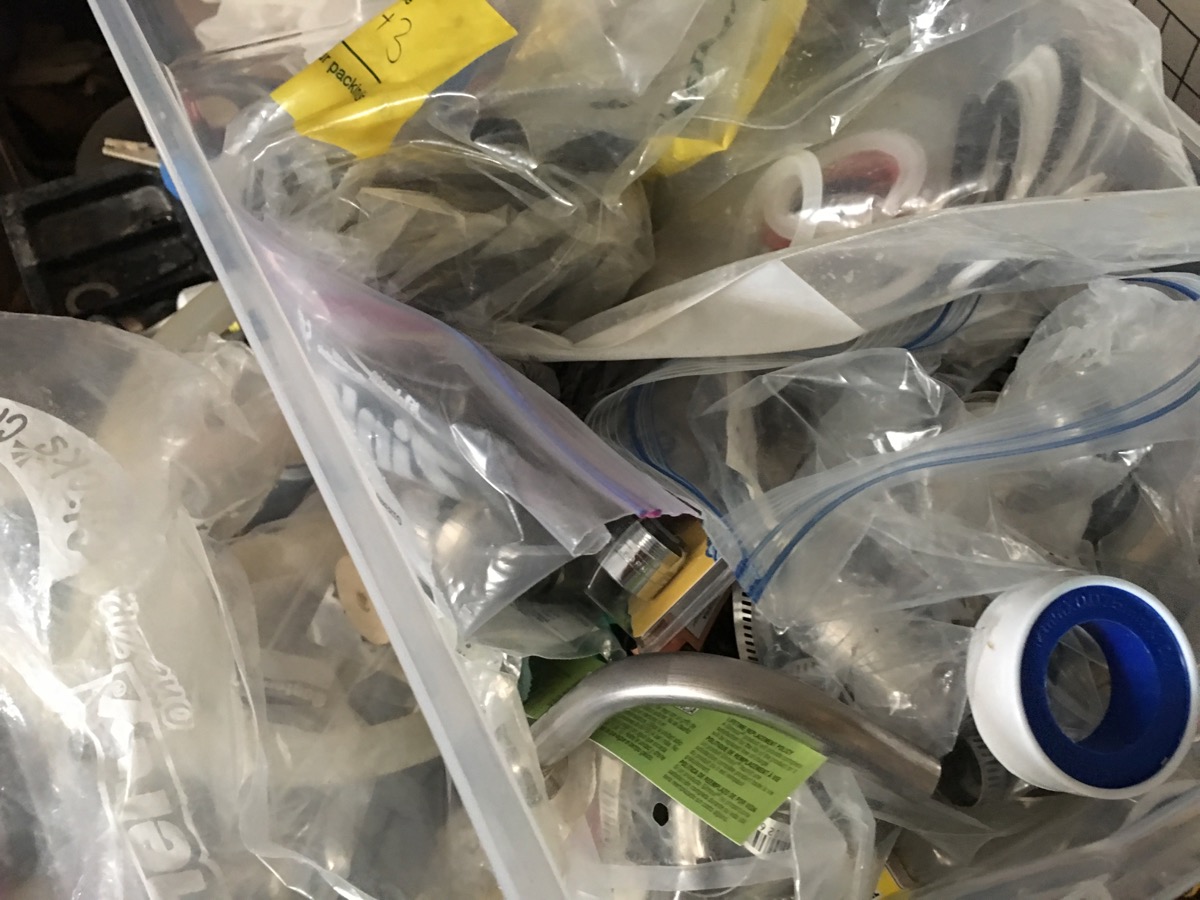
5. Understand your motivations
Learn what makes you happy. For many home brewers, this is a simple hobby. An escape from a daily grind that results in a fresh beer in the glass. For others, home brewing is about competition and loading up on bragging rights. For a smaller subset, it is a consuming passion. Digging deeper and deeper into brewing can become (sometimes overly so) an obsession.
What makes you happy? Hitting your expected numbers dead on time and time again? Or sharing your sparkling golden bounty with friends and family? What goals have you set for your home brewing career? Are they realistic? Good goals are achievable, measurable, and easily defined.
One of mine is to win a gold medal in a major competition with a light lager this year. That means I truly need to get a grasp on packaging, which has been a problem for me. I hate bottling. Hate it.
I am goal oriented, detailed, and passionate. I naturally apply the same ethos to my brewing. However, as mentioned, it can be a zero sum game. I constantly read both technical and historical brewing books, and try to apply what I learn. I am also naturally impatient, often making big leaps (and too many changes at once), and then disappointed. While failure is an option, repeated failures are often dispiriting. I can give you a bunch of ways NOT to make a good beer! Manage disappointment through managing expectations.
Skip the ego. I have tried to be less authoritative and more humble in giving brewing advice. Be open-minded and considerate of a fellow brewer's approach. When judging, find the positives before criticizing. When teaching classes, I try to use more literal demonstrations and less raw data, although many folks want chapter and verse, and it often doesn't fit their brewing system.
Each brewer is responsible to find the gear, techniques, and style that suits them. At no time should you feel bullied or jealous or defensive in the face of a self-proclaimed "advanced" brewer. If they denigrate or laugh at your system, avoid that toxic person. I hope that each brewer would attempt to make the very best product possible, and learn through experience. I would also hope that a brewer who has some success, will pass along their experience in a humble and generous fashion.
6. Dump that beer
I am sitting with three kegs of beer that will be dumped after I finish this article. One is a poorly executed saison that drinks more like a slightly spicy English Brown ale and has a slight contamination issue. The other is what I call my onion helles - my first LO2 attempt massively overdosed with bisulfites. Both beers are pretty lousy and yet I hang onto them. While my fermenters are a bit light right now, I need the space. I also don't need the reminder of those particular failures. Time to move along.
Bad beer becomes really old stale bad beer over time. If cellar space is an issue, then dump the stuff you won't enjoy or dispose of it in another way (ethanol removal devices are technically illegal). That said, make sure to troubleshoot the what, why, and how of the failure. Then dump it without guilt or angst.
Summary
Well that was cathartic and also somewhat random.


